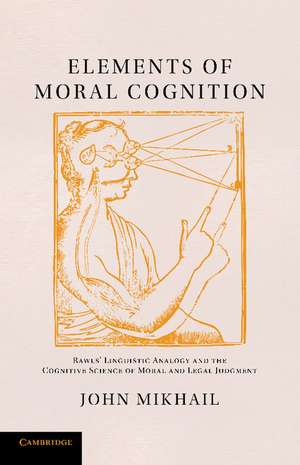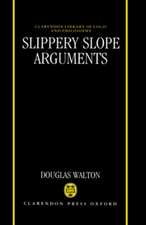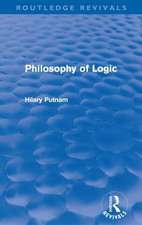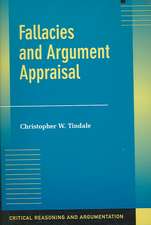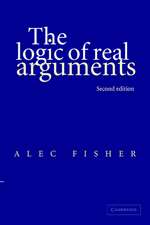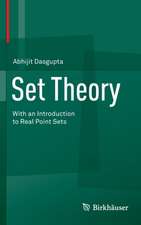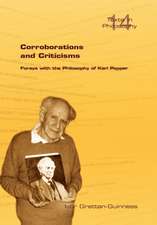Elements of Moral Cognition: Rawls' Linguistic Analogy and the Cognitive Science of Moral and Legal Judgment
Autor John Mikhailen Limba Engleză Paperback – 25 sep 2013
| Toate formatele și edițiile | Preț | Express |
|---|---|---|
| Paperback (1) | 401.96 lei 6-8 săpt. | |
| Cambridge University Press – 25 sep 2013 | 401.96 lei 6-8 săpt. | |
| Hardback (1) | 556.74 lei 6-8 săpt. | |
| Cambridge University Press – 12 iun 2011 | 556.74 lei 6-8 săpt. |
Preț: 401.96 lei
Nou
Puncte Express: 603
Preț estimativ în valută:
76.92€ • 80.21$ • 63.93£
76.92€ • 80.21$ • 63.93£
Carte tipărită la comandă
Livrare economică 21 martie-04 aprilie
Preluare comenzi: 021 569.72.76
Specificații
ISBN-13: 9781107680371
ISBN-10: 1107680379
Pagini: 432
Dimensiuni: 152 x 229 x 24 mm
Greutate: 0.63 kg
Editura: Cambridge University Press
Colecția Cambridge University Press
Locul publicării:New York, United States
ISBN-10: 1107680379
Pagini: 432
Dimensiuni: 152 x 229 x 24 mm
Greutate: 0.63 kg
Editura: Cambridge University Press
Colecția Cambridge University Press
Locul publicării:New York, United States
Cuprins
Part I. Theory: 1. The question presented; 2. A new framework for the theory of moral cognition; 3. The basic elements of Rawls' linguistic analogy; Part II. Empirical Adequacy: 4. The problem of descriptive adequacy; 5. The moral grammar hypothesis; 6. Moral grammar and intuitive jurisprudence: a formal model; Part III. Objections and Replies: 7. R. M. Hare and the distinction between empirical and normative adequacy; 8. Thomas Nagel and the competence-performance distinction; 9. Ronald Dworkin and the distinction between I-morality and E-morality; Part IV. Conclusion: 10. Toward a universal moral grammar.
Recenzii
'Judicious, carefully executed, and deeply informed, this valuable study builds upon the early work of John Rawls, including his now-classic Theory of Justice, identifying its core principles, persuasively defending them against critics, deepening them conceptually and developing rich empirical foundations. It thereby provides the outlines of a naturalistic theory of moral judgment and moral cognition, which may well be a common human possession. One conclusion with broad consequences is that moral cognition crucially relies on the generation of complex mental representations of actions and their components. Mikhail's enterprise resurrects fundamental themes of traditional moral philosophy and Enlightenment rationalism, while showing how they can be cast as empirical science with far-reaching implications for political, social, and legal theory. It is a most impressive contribution.' Noam Chomsky
Notă biografică
Descriere
John Mikhail explores whether moral psychology is usefully modelled on aspects of Universal Grammar.
